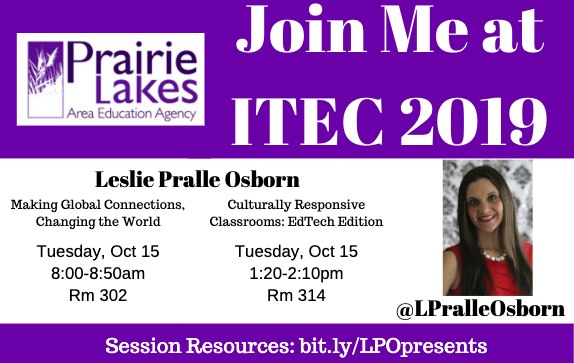Part 5: Networking
Explanation:
Few things are more important in life than our relationships. How we communicate and interact with others defines a large part of who we are. We must teach our students about compassion and empathy, respect and caring. The relationships we create with those around us inspire us, educate us, and drive us. People often feel that digital relationships are false, and it’s true that students must be careful about the relationships they create online. However, that being said, some of my best friends are people I’ve never met in person, or see only a few times each year. Online communities have given us an opportunity to find those with similar passions, and nurture parts of our personalities that may not always mesh with those in our immediate vicinity. On the other hand, human connections with the people we live with are just as important. Communicating and forming relationships in all walks of life is part of growing up. Networking brings new learning, new resources, and new opportunities. Learning to appropriately navigate, build, and utilize your networks are skills that greatly benefit global citizens.
Components:
In the News:
Business value of social networking
8 Secrets from Power Networking Pros
Learning from your network
Jefferson students on Twitter
Challenges:
Challenge 1:
Discuss good character and the importance of relationships, respect, and caring within a network and community (physical and digital). Challenge your students to identify and award one (or two or twelve!) of their peers with a good character award from Character Counts!
Challenge 2:
How are you modeling a network? How are your students networking? Try this classroom example of teaching students about networking for their future. Try talking to students about how to connect for learning and creating a Student Learning Network! Need to know more? This webinar from PBS LearningMedia’s “Get Your Tech On” series discusses social media in the classroom.
Challenge 3:
Part of being a good citizen includes connecting and communicating with people in a respectful way, regardless of background, opinion, or platform. Anonymity on social media can be a tempting way to leave hurtful or rude feedback or comments when you don’t see eye-to-eye with others. It’s important to remember that being respectful of others is an expectation in all walks of life. This Digizen resource explains what you need to know about using social media for positive purposes, provides reports and data for sharing, and offers activities to practice positive networking. Have students try one or all!
Few things are more important in life than our relationships. How we communicate and interact with others defines a large part of who we are. We must teach our students about compassion and empathy, respect and caring. The relationships we create with those around us inspire us, educate us, and drive us. People often feel that digital relationships are false, and it’s true that students must be careful about the relationships they create online. However, that being said, some of my best friends are people I’ve never met in person, or see only a few times each year. Online communities have given us an opportunity to find those with similar passions, and nurture parts of our personalities that may not always mesh with those in our immediate vicinity. On the other hand, human connections with the people we live with are just as important. Communicating and forming relationships in all walks of life is part of growing up. Networking brings new learning, new resources, and new opportunities. Learning to appropriately navigate, build, and utilize your networks are skills that greatly benefit global citizens.
Components:
- Relationships & Communication
- Including everyone
- Being compassionate
- Respect
- Caring
In the News:
Business value of social networking
8 Secrets from Power Networking Pros
Learning from your network
Jefferson students on Twitter
Challenges:
Challenge 1:
Discuss good character and the importance of relationships, respect, and caring within a network and community (physical and digital). Challenge your students to identify and award one (or two or twelve!) of their peers with a good character award from Character Counts!
Challenge 2:
How are you modeling a network? How are your students networking? Try this classroom example of teaching students about networking for their future. Try talking to students about how to connect for learning and creating a Student Learning Network! Need to know more? This webinar from PBS LearningMedia’s “Get Your Tech On” series discusses social media in the classroom.
Challenge 3:
Part of being a good citizen includes connecting and communicating with people in a respectful way, regardless of background, opinion, or platform. Anonymity on social media can be a tempting way to leave hurtful or rude feedback or comments when you don’t see eye-to-eye with others. It’s important to remember that being respectful of others is an expectation in all walks of life. This Digizen resource explains what you need to know about using social media for positive purposes, provides reports and data for sharing, and offers activities to practice positive networking. Have students try one or all!

 RSS Feed
RSS Feed
